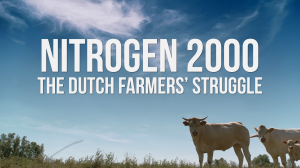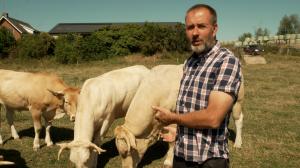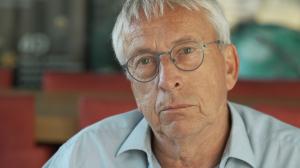Dutch Farmers Face Nationalization, New Film Details

NITROGEN 2000, the latest work by filmmaker James Patrick, details the plight of Dutch farmers who face forced buyouts of their land.
A new documentary, NITROGEN 2000, unveils the struggle of Dutch farmers who face forced buyouts of their land. Similar policies are being deployed globally.
A newly released documentary, NITROGEN 2000, details the plight of Dutch cattle farmers at the hands of their own government.
• The Dutch government wants to nationalize half of all cattle famers’ land, about a third of Holland.
• A $25 billion government fund has been established to buy out the farmers, and those who sell will be legally prevented from farming again anywhere in Europe.
• The U.N. has called for a reduction of nitrogen emissions worldwide; however, experts in the film reveal how the environmental policies are flawed and will have a devastating effect on farmers and the global food supply.
• NITROGEN 2000 tells the story through illuminating interviews with farmers as well as scientists and government officials.
Increasingly, officials worldwide have begun to ramp up environmental restrictions, calling on two of nature’s most common elements to be controlled—carbon and nitrogen. In the case of Holland, officials claim that too much nitrogen from cattle farms is harming Natura 2000 areas—protected nature zones that were established to preserve biodiversity. However, experts in NITROGEN 2000 disagree, and farmers being forced out of business are angry.
“Why need to go my cows, why my farms needs to close?” asks Jos Bolk, a farmer directly affected by the nitrogen policy. “The facts they use are not connecting together.”
“They have declared that nitrogen is the major problem,” remarked Professor Han Lindeboom, a marine ecologist at Wageningen University and advisor to NIOZ, the Royal Netherlands Institute for Sea Research. “Well I am an expert in nitrogen and I dare to say it is not.” Lindeboom says the computer models the government is using to enforce the buyouts are flawed and based on the assumption that nitrogen can migrate from field to field.
Nitrogen, which constitutes nearly 70% of the air we breathe and is the primary ingredient in fertilizer, has been declared a pollutant by the EU and Dutch government.
NGOs—namely Dierenbescherming, Varkens in Nood, Greenpeace, Vogelbescheming, Natuuramonumenten—are the primary organizations lobbying for the nitrogen policy. Their budget is funded by the Dutch government. Once a farmer is bought out, the NGOs become custodians of the land and, in some cases, put cows back on the land to manage it.
Commenting on this policy, farmer Bolk said, “I do the same as the nature organizations in Holland … I think it’s very strange that a farmer is not allowed to do it but a nature organization can do the same as I do and then there is no nitrogen problem.”
“Farmers have to reduce the use of nitrogen,” stated Dutch parliament member Tjeerd De Groot. “The government has to do what the government has to do, sometimes which is painful, but there is also 25B euro for a small country as the Netherlands to help farmers to get a better life to help nature to restore.”
Despite the results of the last election in the Netherlands, where the farmers’ political party won many seats, the forced buyout program still stands. Thus, farmers in and near Natura 2000 areas are facing eminent closure. NITROGEN 2000 documents this struggle.
NITROGEN 2000 is the latest work by James Patrick, a filmmaker, economist and investigative journalist who tackles complex—and sometimes controversial—issues. The film can be seen at https://vimeo.com/ondemand/nitrogen2000.
For more information, visit https://bigpicture.watch or www.bit.ly/Nitrogen2000 to access film stills.
Sherry Syence
Syence Communications
+1 202-681-1901
sherry@syence.biz
Visit us on social media:
Twitter
YouTube
Other
NITROGEN 2000 is the latest work by James Patrick, a filmmaker, economist and investigative journalist who covers complex—and sometimes controversial—issues.
Legal Disclaimer:
EIN Presswire provides this news content "as is" without warranty of any kind. We do not accept any responsibility or liability for the accuracy, content, images, videos, licenses, completeness, legality, or reliability of the information contained in this article. If you have any complaints or copyright issues related to this article, kindly contact the author above.


